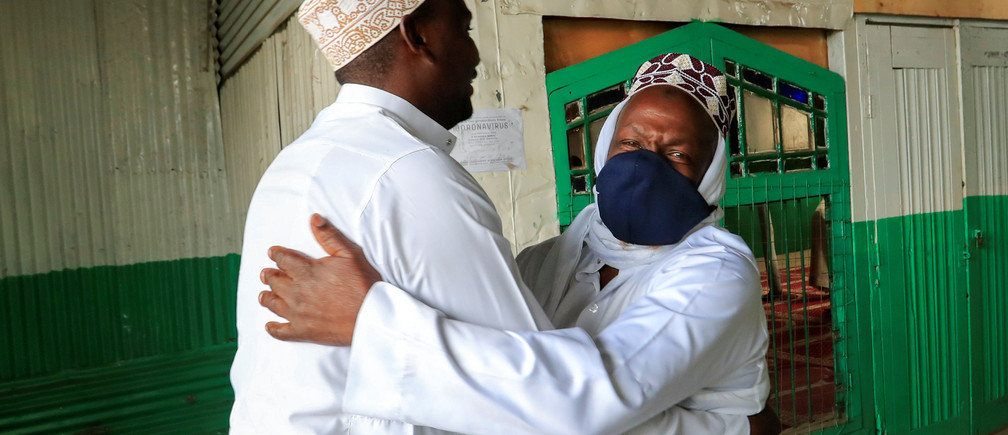Africa 'least affected' by COVID-19; hydroxycholoroquine trial suspended - WHO briefing

Lower number of cases in Africa attributed to Ebola experience and rapid response by African Union. Image: REUTERS/Thomas Mukoya
- World Health Organization held a media briefing on Africa Day, 25 May, to update the public on the COVID-19 coronavirus pandemic.
- Clinical trial of hydroxycholoroquine suspended after Lancet study finds drug causes 'higher mortality rate' among COVID-19 patients.
- Lower number of cases in sub-Saharian Africa attributed to Ebola experience and speedy response by African Union.
On 22 May, The Lancet published an observational study on the controversial drugs hydroxycholoroquine and chloraquine, namely on their effects on hospital patients suffering from the novel coronavirus. The authors estimated a "higher mortality rate" among patients receiving the drug, with risk of death increasing by 34% and serious heart arrhythmias by 137%.
In the meantime, a group of participants in the WHO's Solidarity Trial, which aims to find a treatment for COVID-19, has agreed to review all available evidence. Until they can evaluate the drug's potential harms and benefits, the group has announced a "temporary pause" of the hydroxychloroquine section of the trial while the data is reviewed by the Data Safety Monitoring Board.
"I wish to reiterate that these drugs are accepted as generally safe for use in patients with autoimmune diseases or malaria," Dr Tedros Adhanom Ghebreyesus, WHO Director-General, told the online briefing.
Africa the least affected region
"Today is a special day," said Dr Tedros in his opening remarks at the media briefing to commemorate Africa Day, 57 years after the formation of the African Union.
While noting that "there is a likelihood that some cases may be missed", the WHO chief commended the continent for having only 1.5% of the world's reported cases of COVID-19 and less than 0.1% of deaths, adding: "Africa is the least-affected region globally in terms of the number of COVID-19 cases and deaths reported to WHO."
So what's behind Africa's coronavirus containment? Countries across the continent have "garnered a great deal of experience from tackling infectious diseases like polio, measles, Ebola, yellow fever, influenza and many more", offered Tedros. But credit, too, goes to the rapid response by the African Union, headed up by South Africa's President Cyril Ramaphosa:
African governments were quick to take action and slow the spread of the virus, despite the cost to communities and economies, said Dr Matshidiso Moeti, Regional Director of the Africa region. "In 28 cities, they accepted tough measures. They were ready to comply with some of the measures, which were very challenging."
Open science is also a factor, with laboratories in Senegal and South Africa among the first to implement diagnostic testing, as they collaborated with @AfricaCDC and the WHO to extend training for laboratory technicians in detecting the virus and building up national capacity.
Africa can't allow a "silent pandemic" to take place, said Professor Samba Sow, Director-General of the Center for Vaccine Development in Mali. And for this, communication is key. "Let’s not hear again 'there’s no data from Africa' - we have to generate data from Africa, for Africa."
Sow urged African leaders to ensure tracing, testing and tracing; to place Africa at the forefront of vaccine research; and to not allow health systems to become overwhelmed to the detriment of other health issues, such as maternal mortality.
Want more Africa news? Watch the WHO regional director for Africa, the Minister of Agriculture and Animal Resources of Rwanda discuss the coronavirus crisis:
Don't miss any update on this topic
Create a free account and access your personalized content collection with our latest publications and analyses.
License and Republishing
World Economic Forum articles may be republished in accordance with the Creative Commons Attribution-NonCommercial-NoDerivatives 4.0 International Public License, and in accordance with our Terms of Use.
The views expressed in this article are those of the author alone and not the World Economic Forum.
Stay up to date:
Global Health
Forum Stories newsletter
Bringing you weekly curated insights and analysis on the global issues that matter.
More on Health and Healthcare SystemsSee all
Mansoor Al Mansoori and Noura Al Ghaithi
November 14, 2025







